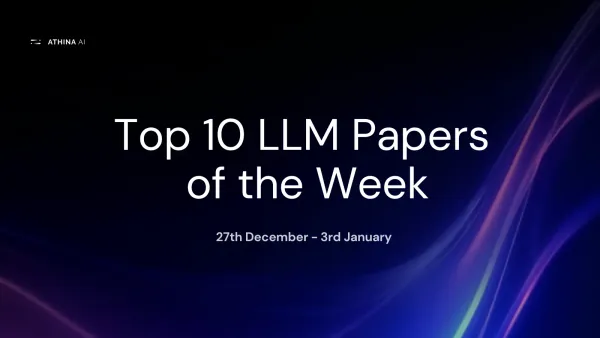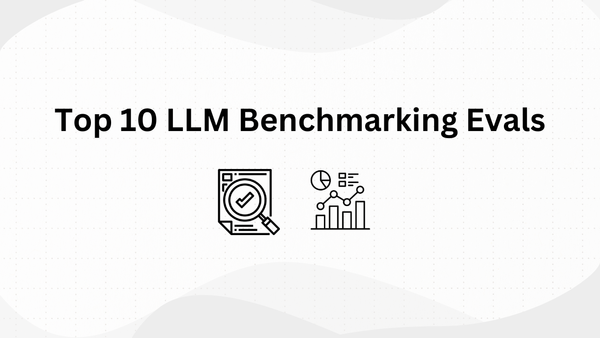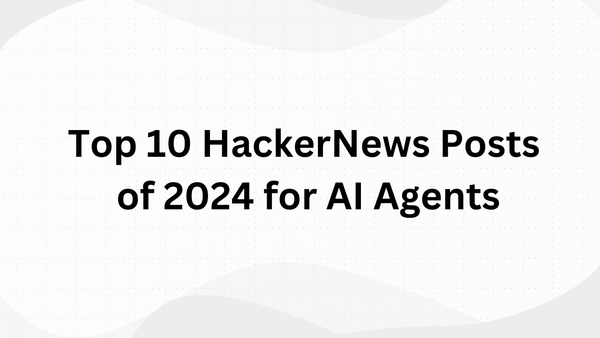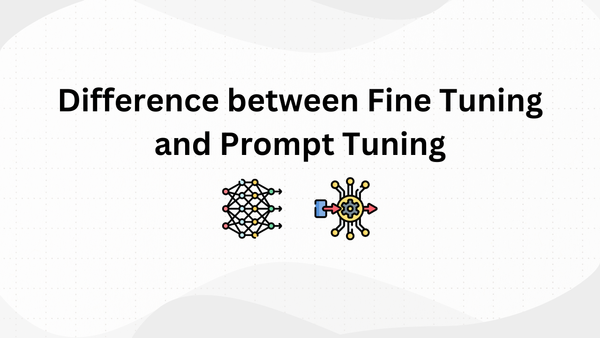Top 10 Hacker News Posts of 2024 for RAG
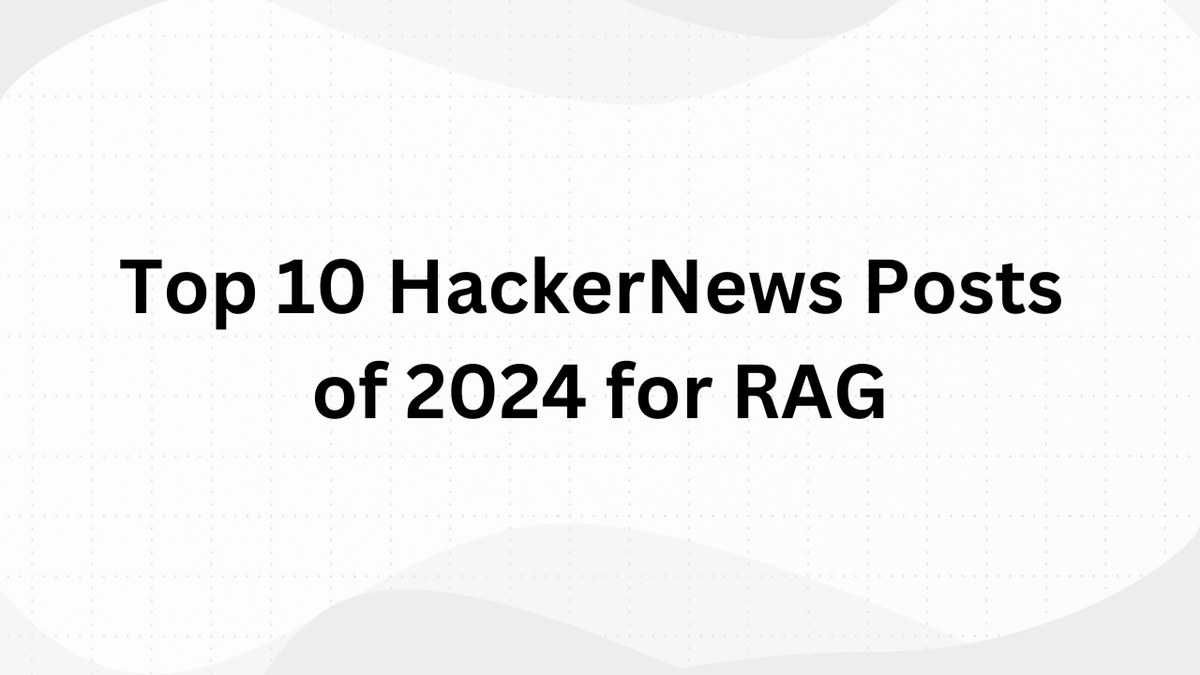
This year, Retrieval-Augmented Generation (RAG) has been one of the hottest topics in tech, reshaping how we think about Enterprise AI. For this rapid development, Hacker News emerged as a hub for critical discussions with insights, breakthroughs, and debates about RAG throughout 2024.
In this post, we’ve compiled the top 10 Hacker News discussions that shaped the conversation around Retrieval-Augmented Generation (RAG) in 2024. Let’s dive into the details.
1) FastGraphRAG – Better RAG using good old PageRank
Link: https://news.ycombinator.com/item?id=42174829
Upvotes: 457
Comments: 119
Summary of Conversation: This post discusses about FastGraphRAG, an open-source RAG framework using knowledge graphs and PageRank for improved multi-hop reasoning and structured retrieval. It tackles data noise and domain-specific challenges by integrating entity extraction and graph-based navigation, offering scalable and efficient solutions.
2) Pg_vectorize: Vector search and RAG on Postgres
Link: https://news.ycombinator.com/item?id=39613669
Upvotes: 295
Comments: 116
Summary of Conversation: The discussion highlights best practices for implementing RAG, emphasizing the importance of semantic chunking and hierarchical approaches for context handling. Tools like Phi-2 and pgvector are praised for simplifying workflows, while challenges include managing costs, ensuring accuracy, and handling large datasets.
3) Open-source Rule-based PDF parser for RAG
Link: https://news.ycombinator.com/item?id=39113972
Upvotes: 293
Comments: 32
Summary of Conversation: This thread discusses a robust PDF parser with OCR integration via Tesseract and features like text boundary detection, table parsing, and layout preservation. Comparisons highlight alternatives like Tika, PyMuPDF, and AWS Textract, with a preference for rule-based approaches for handling complex layouts.
4) Autoflow, a Graph RAG based and conversational knowledge base tool
Link: https://news.ycombinator.com/item?id=42210689
Upvotes: 280
Comments: 36
Summary of Conversation: The post discusses AutoFlow, an open-source GraphRAG-based knowledge tool built on TiDB Vector, LlamaIndex, and DSPy. It features a conversational search page with sitemap scraping and an embeddable JavaScript widget for real-time product queries. Users praised its integration ease and potential for efficient knowledge retrieval.
5) Solving the out-of-context chunk problem for RAG
Link: https://news.ycombinator.com/item?id=41034297
Upvotes: 260
Comments: 89
Summary of Conversation: The discussion explores combining traditional full-text search (FTS) and Retrieval-Augmented Generation (RAG) for LLMs, emphasizing tailored algorithms for specific datasets. Critics highlight FTS’s precision in domain-specific contexts and RAG’s semantic flexibility but note challenges like false positives and retrieval gaps. Hybrid approaches, enriched metadata, and iterative retrieval methods improve results, while tools like Neo4j and evolving benchmarks address scalability and customization needs.
6) Greptile (YC W24) - RAG on codebases that actually works
Link: https://news.ycombinator.com/item?id=39604961
Upvotes: 253
Comments: 166
Summary of Conversation: The discussion talks about Greptile, a developer tool that uses advanced techniques like AST parsing, agentic search, and docstring embeddings to answer complex questions about large, interconnected codebases. It traces references across files and repos, enabling debugging, OSS repo exploration, and legacy code parsing. With strict security measures, it processes code locally and only accesses repos via GitHub's read-only API
7) R2R V2 – A open source RAG engine with prod features
Link: https://news.ycombinator.com/item?id=40799791
Upvotes: 251
Comments: 71
Summary of Conversation: The post introduces R2R, an open-source RAG engine designed to simplify building accurate and reliable AI solutions. Built on Postgres and Neo4j, it supports multimodal data ingestion, hybrid search, knowledge graph construction, and observability. Addressing issues with tools like LangChain, R2R offers quick deployment, RESTful APIs, and features for scalability and customizability, helping developers build and refine AI agents efficiently.
8) Better RAG Results with Reciprocal Rank Fusion and Hybrid Search
Link: https://news.ycombinator.com/item?id=40524759
Upvotes: 249
Comments: 57
Summary of Conversation: The thread explores Hybrid Search with Reciprocal Rank Fusion (RRF) to enhance RAG performance by combining vector and keyword search. Participants share tools like Postgres with pgvector, Elasticsearch, and LlamaIndex while discussing reranking, embedding, and chunking strategies. Challenges include optimizing language support and tailoring approaches to specific use cases.
9) Txtai: Open-source vector search and RAG for minimalists
Link: https://news.ycombinator.com/item?id=41024362
Upvotes: 249
Comments: 55
Summary of Conversation: This thread discusses txtai, a framework for vector search, RAG workflows, and LLM orchestration. Users appreciate its simplicity and performance, particularly for local use cases. Many highlight its innovative features like Semantic Graphs and efficient embedding handling, with examples of practical applications such as building RAG systems for PDFs or game books. Suggestions include improving type annotations and better documentation for hardware requirements.
10) I want flexible queries, not RAG
Link: https://news.ycombinator.com/item?id=40431210
Upvotes: 237
Comments: 153
Summary of Conversation: The post argues that RAG (Retrieval-Augmented Generation) isn't inherently tied to vector search and suggests using a mix of retrieval methods for better results. It emphasizes that retrieval quality directly impacts the usefulness of LLM outputs, as the generation step cannot compensate for poor search. The author highlights the value of constructing rich query contexts, noting that good retrieval design often determines success in RAG systems.
Conclusion
As we wrap up this roundup of the top 10 Hacker News posts about RAG in 2024, it's clear that RAG plays a pivotal role in shaping Enterprise AI. By integrating external data retrieval with language generation, RAG enhances AI accuracy and relevance, addressing challenges like knowledge updates and domain specificity.
Recent advancements include the incorporation of multimodal data, enabling AI systems to process and generate responses across various media types, thereby broadening their applicability in enterprise settings.
Looking ahead, RAG is poised to further transform Enterprise AI by improving scalability, efficiency, and personalisation. Ongoing research focuses on optimizing retrieval mechanisms and integrating structured data sources, such as knowledge graphs, to enhance AI capabilities.
Resources
I hope this guide to the top Hacker News posts about RAG has provided actionable insights and technical depth to the subject. If you're inspired to explore advanced RAG techniques beyond these discussions, check out the GitHub Repository. It's a great resource to deepen your knowledge and refine your workflows.

